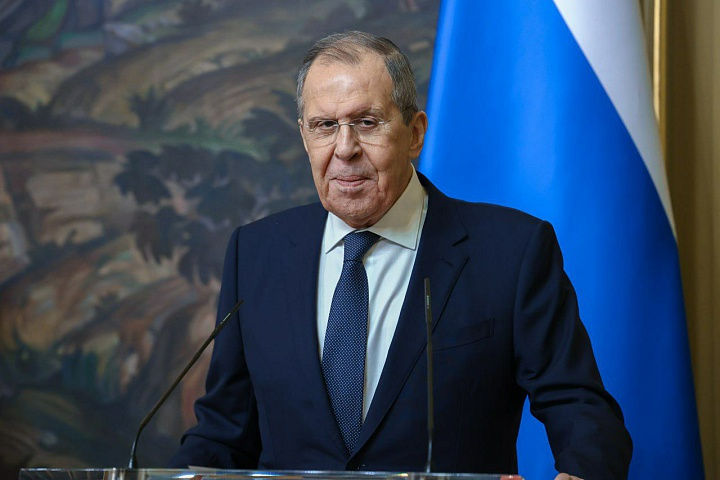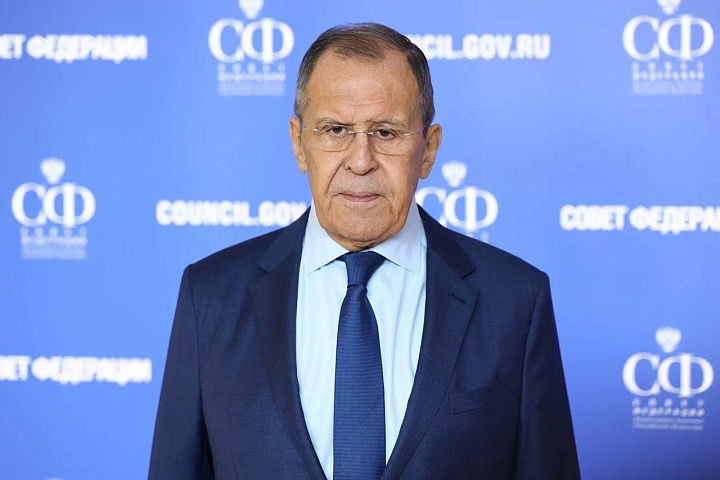Armenia Rejects Russia’s Offer for Mediation in Peace Talks with Azerbaijan
- The Armenian Report Team

- Oct 23, 2024
- 3 min read

Armenia has declined another offer from Russia to mediate its peace negotiations with Azerbaijan, showing its growing preference for Western-led diplomatic efforts. Armenian Foreign Minister Ararat Mirzoyan dismissed the proposal from his Russian counterpart, Sergei Lavrov, during a parliamentary session on Wednesday, saying that Armenia does not see the need for Russia, Turkey, or Iran to be involved in its peace talks with Azerbaijan.
Lavrov's offer was made public after an October 18 meeting in Istanbul involving the foreign ministers of five countries, including Russia, Turkey, and Iran. This group forms part of the "3+3" regional platform, which includes Armenia, Azerbaijan, and Georgia. Lavrov suggested using this platform to facilitate the finalization of a peace agreement between Armenia and Azerbaijan, building on earlier Russian-brokered understandings from 2021 and 2022.
Lavrov criticized Western involvement in the region, accusing Western countries of interfering in the Armenia-Azerbaijan conflict for their own interests. He expressed hope that the 3+3 platform could help resolve outstanding issues, such as border delimitation and reopening trade routes between the two countries.
However, Mirzoyan was quick to reject the offer, stating that Armenia is focused on direct, bilateral negotiations with Azerbaijan. “That proposal [from Lavrov] is not really on the table,” Mirzoyan told parliament, adding, “even if it is, we do not find it expedient to respond positively to it.” He explained that Armenia and Azerbaijan are already engaged in talks on border issues and a potential peace treaty without the need for mediation from Russia or other regional powers.
This marks the second time this year that Armenia has turned down Russian mediation. The Armenian government has shown a preference for peace negotiations mediated by Western nations, particularly the United States and the European Union.
Armenia’s diplomatic stance has shifted noticeably over the past year, as relations between Yerevan and Moscow have become strained. Russia, which has long played a dominant role in the South Caucasus, finds itself increasingly sidelined as Armenia pursues peace talks with Azerbaijan through Western channels.
Last month, U.S. Secretary of State Antony Blinken hosted peace talks between Mirzoyan and Azerbaijani Foreign Minister Jeyhun Bayramov in New York. The two ministers also met on the sidelines of the recent Istanbul gathering, signaling Armenia’s openness to maintaining dialogue under Western facilitation.
Washington has been actively involved in supporting peace efforts between the two countries. U.S. President Joe Biden has expressed strong support for the peace process. Earlier this week, Michael Carpenter, a senior official from the U.S. National Security Council, delivered letters from Biden to the leaders of Armenia and Azerbaijan. In his message to Armenian Prime Minister Nikol Pashinyan, Biden reaffirmed Washington’s commitment to taking "bold initiatives" to help broker a peace deal.
Despite these diplomatic efforts, reaching a final peace agreement remains difficult. Azerbaijan has continued to reject Armenia's proposal to sign a preliminary peace deal. According to Mirzoyan, Baku is also pushing for changes to Armenia’s constitution, a move Armenia sees as an unnecessary and unconstructive demand.
Mirzoyan criticized Azerbaijan’s "unconstructive approach" but stressed that Armenia remains focused on making peace a reality. "This does not distract us from our strategy: to make the signing of the peace agreement a reality as soon as possible," he stated.
The border delimitation process and the broader peace treaty are sensitive and complex issues, with deep historical roots and long-standing grievances on both sides. Armenia seeks guarantees of security and stability for its borders, while Azerbaijan is pushing for more comprehensive terms, including changes to Armenia’s legal framework.
The growing tension between Armenia and Russia is also a key factor in the shifting dynamics of the region. Armenia has been moving away from Moscow’s influence, particularly since President Alexander Lukashenko of Belarus, a close ally of Russian President Vladimir Putin, made pro-Azerbaijani statements during a recent visit to Azerbaijan. Lukashenko’s comments led to Armenia recalling its ambassador from Minsk for consultations in June, further straining ties between Yerevan and Moscow.
Lavrov’s latest mediation offer, therefore, comes at a time when Armenia is increasingly distancing itself from its traditional allies in favor of Western partners. Prime Minister Pashinyan has made it clear that as long as the current leadership remains in power in Belarus, Armenian officials will avoid engaging with Belarus.
Armenia’s decision to reject Russia’s latest mediation offer shows the country’s growing preference for Western-led peace initiatives. As Armenia continues to navigate a delicate balance between its historic relationships with Russia and its desire for deeper engagement with the West, the path to a final peace agreement with Azerbaijan remains uncertain.






Comments